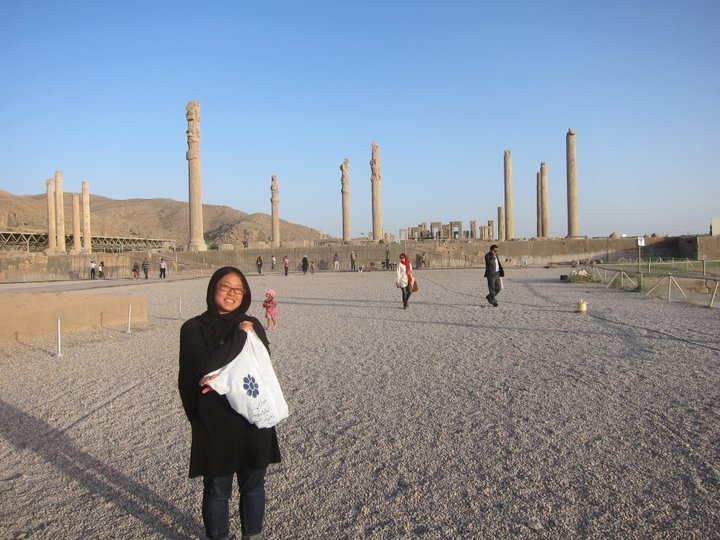How Travel Shaped My Identity and Inspired Nagomi Visit
by Alisa Sanada
I run Nagomi Visit, a nonprofit that connects travelers with local hosts in Japan to share a home-cooked meal. In this post, I share my journey in founding this organization and my reasons for wanting to join World Walker as a Trip Mentor for the Spring Break 2025 Tradition and Innovation in Japan program.
I grew up in Texas during the ’80s and ’90s, attending schools with few Asian Americans. At the time, there was no conversation about diversity or inclusion, so I was seen as the quiet Asian who never spoke in class. I remember a parent-teacher conference where my teacher encouraged me to speak up more, but no one questioned why I wasn’t speaking in the first place. Looking back, I realize I felt my voice didn’t matter. Instead, I spent my time on the Internet exploring the world beyond my school.
The day I truly felt like an outsider was when my English teacher suggested I read Memoirs of a Geisha as a summer assignment. Perhaps she assumed that, because of my Japanese heritage, I, as a Japanese American high school student growing up in Texas, could relate to a story written by a white American about Japanese women in the 1920s-1940s working as performing artists. That moment made me realize I needed to leave Texas to find where I belonged.
Finding Peace with My Identity
I was privileged enough to study abroad in Japan for a year. As a Japanese American, I wanted to connect with the "motherland" of my parents and ancestors, but I was afraid—what if I didn’t feel American in the U.S. and couldn’t feel Japanese in Japan? Upon arriving, I was relieved to be surrounded by people who looked like me. While they might not think like me, the minority Japanese American, it was also empowering to at least look like the majority. I was passing as Japanese, and for the first time, I didn’t feel the imposter syndrome that had weighed on me every day.
I enjoyed my year studying in Japan and later found an IT job that allowed me to stay longer. However, after five years, I grew exhausted from constantly trying to be Japanese—mastering the language and code-switching between Japanese American and Japanese. I realized I would never fully be Japanese.
During this time, I discovered Couchsurfing, which inspired me to meet, host, and visit people from around the world.
In Iceland, I had a life-changing experience that freed me from the struggle of feeling neither "Japanese enough" nor "American enough." I stayed with a group of five friends from different countries: a Mexican student who spoke Thai, a Thai Icelandic student—an identity I had never known existed due to my ignorance at the time—and others from China, Spain, and Norway. Their diverse identities and backgrounds opened my eyes to the complexity of belonging. I realized there’s a whole world of people with different struggles and triumphs, and I finally understood that all I needed to be was myself.
Understanding the Layers of Culture
Since my trip to Iceland, I’ve visited around 85 countries. I was particularly ignorant about many countries in Africa and the Middle East, so I made sure to visit as many as I could. While I would never claim to be an expert after just a few visits, I’ve gained a clearer understanding of my biases and continuously challenged my assumptions.
“One of the most important lessons I’ve learned through my travels is that culture is neither singular nor static. ”
Just like U.S. culture, it is diverse and evolves from generation to generation, and this can be said for any country. For instance, the first person I met in Kuwait was an older Pakistani man who offered to drive my partner and me around and feed us for free because he missed his children, who had just left for college. He said we reminded him of his kids. He shared his perspective on Kuwait, but I reminded myself that it was his Kuwait—similar yet different from the version we experienced with our younger Filipino hosts.
The biggest stereotype I had about Japan was the idea that "the nail that sticks out must be hammered down." While there is some truth to this, the growing immigrant population means it's becoming more common to meet people like me with different backgrounds. I've learned that every culture has its nuances, and it's important to question these assumptions.
Discovering New Ways to Live
Another important lesson I learned from travel is that it’s not just about experiencing different cultures, foods, and customs. While those are certainly valuable aspects of the journey, I also realized that travel offers the opportunity to discover new ways of living and finding happiness.
As I was exposed to new ways of life every day, I constantly reevaluated the goals and values I had set for myself: How important should work be? Should it define my identity? What does success look like? How crucial is productivity?
Nagomi Visit
My Way of Recreating the Life-Changing Experiences I Had
Travel can be exhausting, and not everything goes as planned, but the experiences I’ve had meeting people around the world have profoundly changed my life for the better. This is why I continue to travel, and even though it can be challenging at times, I travel with my young child in hopes of teaching her that the world is vast and diverse, so she will not feel bound by the typical beliefs of her community.
I wanted to create a platform that offers similar transformative experiences equitably, so I helped create Nagomi Visit—a program that connects travelers with local hosts in Japan to share meals, experiences, and genuine cultural exchange. Joining World Walker as a Trip Mentor feels like a natural extension of this mission.
Alisa Sanada
Trip Leader
Tradition and Innovation in Japan
Spring Break 2025


